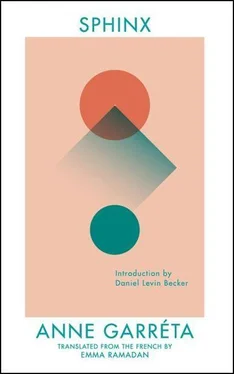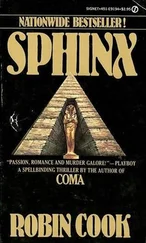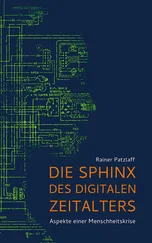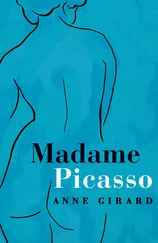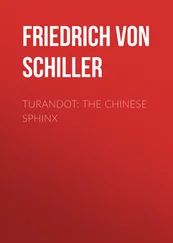Anne Garreta - Sphinx
Здесь есть возможность читать онлайн «Anne Garreta - Sphinx» весь текст электронной книги совершенно бесплатно (целиком полную версию без сокращений). В некоторых случаях можно слушать аудио, скачать через торрент в формате fb2 и присутствует краткое содержание. Год выпуска: 2015, Издательство: Deep Vellum Publishing, Жанр: Современная проза, на английском языке. Описание произведения, (предисловие) а так же отзывы посетителей доступны на портале библиотеки ЛибКат.
- Название:Sphinx
- Автор:
- Издательство:Deep Vellum Publishing
- Жанр:
- Год:2015
- ISBN:нет данных
- Рейтинг книги:3 / 5. Голосов: 1
-
Избранное:Добавить в избранное
- Отзывы:
-
Ваша оценка:
- 60
- 1
- 2
- 3
- 4
- 5
Sphinx: краткое содержание, описание и аннотация
Предлагаем к чтению аннотацию, описание, краткое содержание или предисловие (зависит от того, что написал сам автор книги «Sphinx»). Если вы не нашли необходимую информацию о книге — напишите в комментариях, мы постараемся отыскать её.
is a remarkable linguistic feat and paragon of experimental literature that has never been accomplished before or since in the strictly-gendered French language.
Anne Garréta
Pas un jour Emma Ramadan
Monospace
Sphinx — читать онлайн бесплатно полную книгу (весь текст) целиком
Ниже представлен текст книги, разбитый по страницам. Система сохранения места последней прочитанной страницы, позволяет с удобством читать онлайн бесплатно книгу «Sphinx», без необходимости каждый раз заново искать на чём Вы остановились. Поставьте закладку, и сможете в любой момент перейти на страницу, на которой закончили чтение.
Интервал:
Закладка:
I lose myself in the silent and deserted areas, in the tranquil streets bordered by houses with darkened windows. Unintentionally, I deviate from my path and before me reappears the animation and furious illumination of this ghetto where people come to sell hell and flesh. A wide canal wraps around the cobblestone street where I push through a clotted mass of people. I cross over the canal, splashed with light, to its most distant border where the eddies slow; here it divides into three branches, forming a grid of diverging alleys. Conversations, which I had been catching in snippets as I walked by, stop resounding in my ears. On the other side of the canal, where I have just come from, I had swerved to avoid a screaming junkie who was rolling and contorting on the ground in the grips of withdrawal. From here, I see he is now being shooed away by two police officers attempting to grab hold of him.
The brisk wind strikes and assaults me with its breath as I step onto the path that runs the length of the canal. The farther I plunge, the more the alley darkens and narrows between the smooth black walls of successive warehouse facades and the abrupt edge of the quay where the tide breaks.
Two dark-skinned figures walk toward me, speaking loudly in a dialect that sounds like pidgin English. I hear the two men before being able to distinguish their features, and I keep walking without making eye contact. When I overtake them, they stop and approach me. They surround me in the cone of light diffused by a lone lamppost. The first lines of a poem I have been trying to recall for a few minutes reconstruct themselves in my mind. In a hollow of smashed pavement at my feet is a puddle of stagnant water frozen on the surface; it looks like a pane of ancient glass studded with detritus and trapped air bubbles.
The two men close in on me and speak to me brusquely; I see their eyes, bloodshot, fixed on me. I don’t understand what they want from me. I tell them I have somewhere to be. I see the smaller, more nervous one pull a knife from his pocket and flit the blade, long, thin, sharp, before my eyes. My back to the canal, it’s strange, I feel nothing…But I am haunted by these lines swirling through my head: “The virgin, lasting and lovely today/Will it crack for us with a drunken flap of the wing…” What were the next two lines, the crucial complement?
The deeper voice of the other man cuts through this dancing in my head. He is speaking rapidly; in his bursts of broken delivery I hear the word money, which is repeated by the little one in a voice rendered shrill with fear, haste, or excitement as he says, continually tearing at the air with his knife: “Giv’you’money!” I never have any cash on me; I am incapable of giving them what they want. But how can I prove it to them? I remain mute and immobile with the incompleteness of those lines continuing to plague me. It feels as if I have been standing, motionless, in this frozen décor for a very long time; I detach and distance myself from my body, now petrified. I gaze at it, upright at the edge of the canal, mirrored in the ice: the simulacrum and its reflection. My mind wanders, carried far away at the whim of those two lines in search of that symmetrical fragment which has disappeared into oblivion, the whole thus robbed of its meaning and harmony.
Suddenly, wrenching myself from my reverie, I shake my head and try to free myself, try to force a passage, to break the encirclement pushing me toward the edge of the canal. The man who had been standing unarmed at my left blocks me. I feel a blow to my back, an icy shard pierces my heart. Gripped with this frost, my chest contracts, all my attention rushing and contorting there. A vast silence; time’s passage frozen, fixed, crystallized.
I feel my head hit a pane of glass, and yet — I didn’t know I was falling. Sharp slivers jut out before my eyes, surrounding my skull with painful edges. The brush of a flap of a wing across my face, the caress of the feathers in the fan you were waving…Eden, Eden…
My body is wrested from the ground. My skull smashes through the pane of ice, which breaks into blades that slash my forehead and cheek, though I am unaware of it; a red veil hurtles down before my eyes, heat spreads through my skin. My body is no longer touching the ground; I feel it take flight, trying to balance, shunted about at the whim of the waves. A sudden muffled scalding at the bottom of my chest, the pain of a sundering wrests me from the mute dream that had been suspending the reality of the world around me. Suddenly I feel the inflicted pain; the suffering that I finally experience forces me to realize what is happening in this moment. The two men drag me to the edge of the quay and throw me into the void of a part of the canal that has not yet frozen over. In my death throes, as the waves of blood stream and escape from my back, I feel myself take flight. Then the split-second bedazzlement of a descending darkness into which I sink and lose myself.
TRANSLATOR’S NOTE
In Anne Garréta’s original French text, the narrator of Sphinx walks, overtakes, passes, is dragged along, is led places, follows, hurries, rushes, reaches, reaches on foot, sets foot, wanders, descends, ascends, climbs, strolls, promenades, returns, roams, roves, visits, meets people, joins people, travels, traverses, crosses, takes paths, gets lost, gets diverted, trundles along, flies away, and eventually sinks. Never does the narrator ever simply go anywhere. When I read the book for the first time, this never crossed my mind. It wasn’t until I was translating the book that I asked myself why. The answer is, on the surface, relatively simple: to say “I went to the Apocryphe,” the narrator would have to use the passé composé (the most common French tense used to describe actions already completed) and would have to say either “je suis allé” or “je suis allée.” In other words, for the narrator to say that they simply went anywhere would require revealing his or her gender.
Sphinx is powerful because it refuses to do just that. At no point do we find out the gender of either the narrator or his or her love interest, and at no point does it matter to the story. Although written fourteen years before Garréta was asked in 2000 to join the experimental France-based literary group Oulipo (a portmanteau of Ouvroir de littérature potentielle, the Workshop for Potential Literature), Sphinx certainly follows in the footsteps of its members. Authors such as Georges Perec, Raymond Queneau, and Michelle Gringaud used linguistic constraint as a source of inspiration for their writing, for example in Perec’s La Disparition, a lipogrammatic novel written entirely without the letter ‘e.’ Why did Garréta decide to write a genderless love story? Why this constraint? By omitting the supposedly ever-present phenomenon of gender, Garréta both reveals and undermines sex-based oppression, demonstrating that gender difference is not an important or necessary determinant of our amorous relationships or our identities but is rather something constructed purely in the realm of the social.
Taking inspiration from other authors working to overthrow the destructive construction of gender in Western society, such as Monique Wittig and Roland Barthes, Garréta set about subverting the way gender works in the French language in order to combat its sexist nature. French contains grammatical gender, meaning nouns are assigned either masculine or feminine gender, and pronouns and adjectives then take on agreement. On the other hand, English has semantic gender, meaning that inanimate objects are not assigned a gender, but people and living creatures are (with exceptions) referred to either as masculine or feminine. In French, the subject’s gender can be identified as soon as there is agreement with a verb in the past tense or with an adjective, whereas in English the subject’s gender can only be identified through personal pronouns and possessive adjectives.
Читать дальшеИнтервал:
Закладка:
Похожие книги на «Sphinx»
Представляем Вашему вниманию похожие книги на «Sphinx» списком для выбора. Мы отобрали схожую по названию и смыслу литературу в надежде предоставить читателям больше вариантов отыскать новые, интересные, ещё непрочитанные произведения.
Обсуждение, отзывы о книге «Sphinx» и просто собственные мнения читателей. Оставьте ваши комментарии, напишите, что Вы думаете о произведении, его смысле или главных героях. Укажите что конкретно понравилось, а что нет, и почему Вы так считаете.
